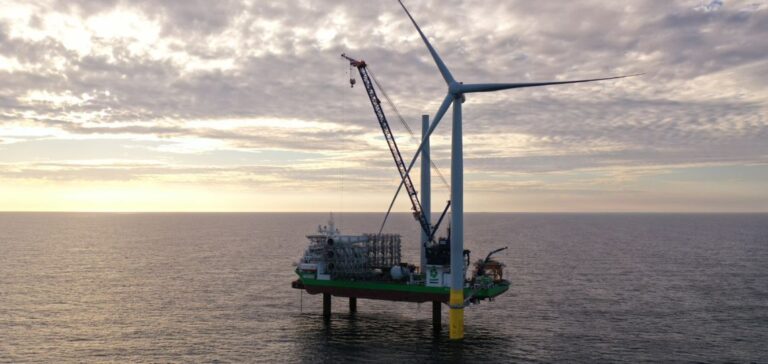The recent victory of the Labour Party in the UK, led by Keir Starmer, marks a significant change in the country’s energy policies. The new government has pledged to accelerate the energy transition to a net-zero electricity system and to strengthen renewable infrastructure by 2030. This direction is applauded by renewable energy players, but raises concerns among fossil fuel producers, particularly those in the North Sea.
Renewable Energy Priorities
Dan McGrail, Chief Executive of RenewableUK, stressed that the Labour Party majority offers a clear mandate to achieve their energy transition mission. Immediate priorities include lifting the effective ban on onshore wind in England and increasing the budget for this year’s Contracts for Difference (CfD) auctions.
This year’s auctions, with a budget of GBP 1.025 billion, focus primarily on offshore wind, aiming to support 4 to 6 GW of new capacity. Labour’s pledge to triple solar capacity by 2030 also requires bold reform of planning procedures to eliminate current inefficiencies, according to Sarah Spencer, land manager at Balance Power.
Planning Challenges and Local Opposition
Historically, British governments have struggled to align national policy and local approval processes, often facing real or perceived local opposition. Onshore wind power and transmission infrastructure have been particularly hard hit by this opposition, which could hamper Labour’s ambitions.
Concerns of Upstream Industries
For upstream industries, the Carbon Capture and Storage Association (CCSA) stresses the importance of maintaining the momentum of CCUS’ cluster sequencing programs, with final investment decisions expected in September for the HyNet and East Coast Cluster projects.
Offshore Energies UK, representing North Sea oil and gas producers, has expressed concern at Labour’s proposals to increase the windfall profits tax and halt the issue of new licenses. These policies, poorly managed and without industry involvement, could threaten jobs and undermine the decarbonization of the UK economy.
Tax Reforms and Production Prospects
The new government plans to increase the tax on energy profits to 38% from the current 35%, with retroactive effect to the start of 2022. David Whitehouse, Chief Executive of OEUK, emphasized that the Labour leadership recognizes the strategic importance of North Sea oil and gas for decades to come.
Analysts at Commodities Insights forecast that UK oil production will fall below 600,000 barrels per day by 2030, compared with 710,000 barrels per day in 2023. They also anticipate a decline in Dated Brent prices, from an average of USD 85.71 in Q3 2024 to USD 81.71 in Q4.
The Labour Party’s victory in the UK brings new challenges and opportunities for the energy sector. The renewable ambitions are clear, but the transition will have to be carefully managed to avoid economic and social disruption, while ensuring the country’s energy security.





















